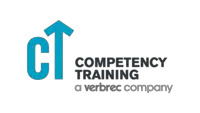
This role has a low level of AI exposure. Core skills such as adaptability, social intelligence, and complex physical tasks remain beyond the capabilities of current AI.
Explore all careersAn Electrical and Instrumentation Technician ensures equipment operates correctly by installing, servicing, troubleshooting, and repairing it.
Get qualified to work as an Electrical and Instrumentation Technician with a course recognised across Australia. Speak to a training provider to learn more.





In Australia, a full-time E&I Technician generally earns $1,700 per week ($88,400 annual salary) before tax. This is a median figure for full-time employees and should be considered a guide only.
 Courses.com.au Team
Courses.com.au Team
The role of an E&I Technician has experienced stable growth over the past 5 years. It is predicted that there will be a strong growth of this occupation over the next 5 years as the demand for these skills continues to increase.
Source: Australian Government Labour Market Insights
 Courses.com.au Team
Courses.com.au Team
To work as an E&I Technician, you will need to complete a relevant tertiary qualification. This is typically at least a Certificate III or IV, however many people choose to complete an Advanced Diploma. Depending on the area you want to work in, you might choose an Advanced Diploma of Electrical and Instrumentation (E&I) Engineering for Oil and Gas Facilities or Advanced Diploma of Electrical and Instrumentation (E&I) Engineering in Mining.
 Courses.com.au Team
Courses.com.au Team
Browse occupations related to Electrical and Instrumentation Technician



Are you interested in pursuing a career in the ever-evolving field of electrical and instrumentation technology? The Electrical and Instrumentation Technician courses in Western Australia provide a pathway for both beginners and experienced professionals to enhance their skills and qualifications. With 16 courses available, ranging from Certificate III in Instrumentation and Control to advanced diplomas for seasoned technicians, there is a course tailored to meet every learner's needs in the bustling landscape of Western Australia.
For those just starting out, there are several beginner courses available, such as the Professional Certificate of Competency in Fundamental E&I Engineering for Oil and Gas Facilities and Apply Work Health and Safety Regulations, Codes and Practices in the Workplace UEECD0007. These courses not only equip you with foundational knowledge but also set the stage for a rewarding career in an industry that is crucial to Australia's energy and resource sectors.
For experienced learners, advanced options abound with courses such as the Advanced Diploma of Electrical and Instrumentation (E&I) Engineering in Mining and Certificate IV in Engineering (Instrumentation). These advanced qualifications give you the competitive edge needed in today’s job market, allowing you to specialise in areas like mining or oil and gas facilities, both of which are prominent industries in Western Australia.
Leading training providers in the region, such as South Metropolitan TAFE and CT, offer comprehensive education and practical training to prepare you for various job roles. Whether you aspire to be a Instrumentation Technician or a Plant Operator, the skills gained from these courses will enhance your employability and align your career goals with industry demands.
The Electrical and Instrumentation Technician training also connects you to a network of job opportunities in fields such as Oil and Gas and Mining. By enrolling in a course today, you can take the first step towards securing a gratifying career in one of Australia’s most essential industries. Explore the various job roles available to you and turn your ambition into action through the Electrical and Instrumentation Technician courses in Western Australia.